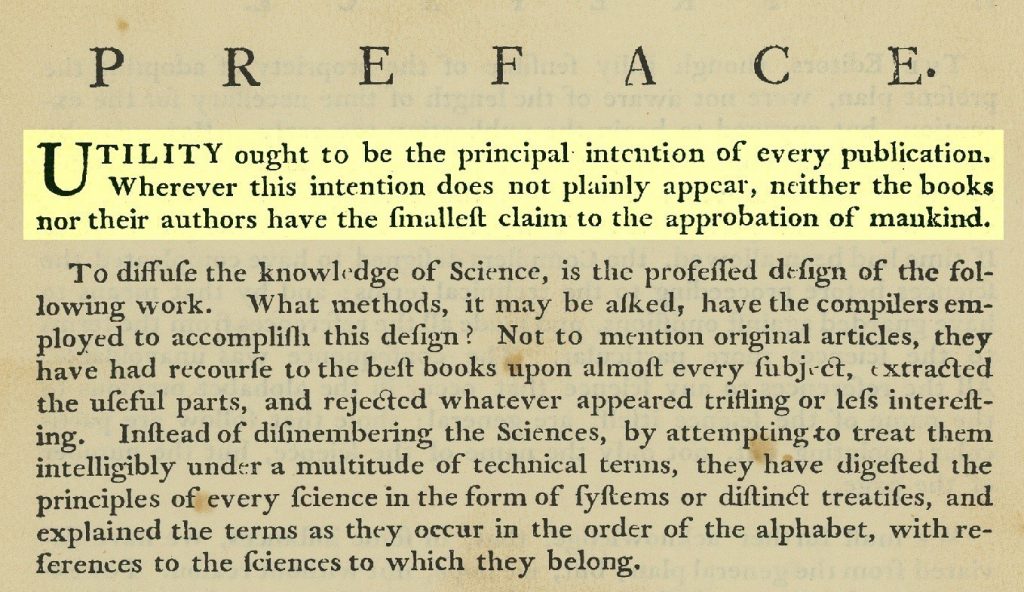
Articles
Editor’s Picks
Industry News
Encyclopaedia Britannica Turns 250 and Observes 25 Years Online
By Henry Kronk
December 10, 2018
December 10 marks a big milestone for one of the most widely used educational resources in the world. On this day in 1768, publication began in Edinburgh Scotland of the first version of the Encyclopaedia Britannica. A full 225 years after, (25 years ago today), the encyclopedia first went digital, hopping on the eb.com universal resource location of the World Wide Web.
Marking a Milestone
Back in 1768, printer Colin Macfarquhar and engraver Andrew Bell identified a problem. There were few good reference materials that individuals outside of the academic elite could use to discover and fact-check. The two began the project and hired William Smellie to be the encyclopedia’s first editor and produce a work “on the principle of ‘Utility, with a goal of making knowledge available to the masses in a world where Latin was the language of intellectuals” according to the Encyclopaedia Britannica Group.

Later that year on December 10, a section of the first volume was released. Further additions would continue to emerge over the next few years, culminating in the 1771 initial 3-volume set.
The Encyclopaedia Britannica would be expanded to 10 volumes in 1777, and continue to grow in breadth throughout the 18th and 19th century.
The Encyclopaedia Britannica Group Were Early Digital Adopters
While the resource comes from a long history of analog reference material, the Encyclopaedia Britannica Group were some of the earliest adopters of digital technology. They published the first digital version way back in 1981, and the first digital multimedia version in 1989. The online version went live a few years later.
Ever since, EB publications have been primarily digital. The group stopped publishing in print altogether as of 2012.
“Today, Britannica is focused on inspiring curiosity and the joy of learning both inside and outside the classroom, helping people cut through the clutter and find better information in the digital universe and transforming learning within schools,” said Karthik Krishnan, global CEO of the Encyclopaedia Britannica Group in a statement.
With print publication gone from their business model, the Encyclopaedia Britannica Group now generates revenue primarily from subscriptions and advertising. A host of digital products and tools now allow users to navigate the encyclopedia, which the company licenses to institutions and businesses.
“Britannica has a presence in 83 countries and reaches 150 million students on the institutional side. On the consumer front, Britannica and our Merriam-Webster subsidiary generate over five billion page views a year across all platforms, making it a top-ten digital destination in the general reference category,” said Krishnan.
“Our mission, to provide verified information in engaging formats to inspire curiosity and the joy of learning, is more vital today than ever. With proactive misinformation flooding the digital world, now more than ever truth needs champions. Britannica is committed to helping people cut through the clutter though initiatives such as Britannica Insights, Britannica School Insights, Demystified and our partnership with YouTube to fight conspiracy theories. Britannica is also actively working with schools on digital literacy efforts to prevent knowledge dilution.”
Communities around the world are celebrating the occasion. Chicago Mayor Rahm Emanuel declared December 10, 2018 to be ‘Encyclopaedia Britannica Day.’
Members of the Encyclopaedia Britannica Group will observe the milestone over the coming year. Events and celebrations among educators, students and the public have been scheduled. Ceremonies will begin with “Curiosity Day” at the Jessie white Learning Academy in Hazel Crest, Ill. and Eisenhower Academy, in Joliet, Ill.
Based on their given trajectory, there is no question that the Encyclopaedia Brittanica will long be available for the curious and confused in digital form for years to come. As novelist Dan Brown put it in Origin:
“The fax machine has gone the way of the dodo bird,” Edmond explained. “And the iPhone will survive only if it keeps outperforming its competition. Typewriters and steam engines died in changing environments, but the Encyclopaedia Britannica evolved, its cumbersome thirty-two-volume set sprouting digital feet and, like the lungfish, expanding into uncharted territory, where it now thrives.”
Featured Image: Wikimedia Commons. Other media courtesy of Encyclopaedia Britannica Group









No Comments